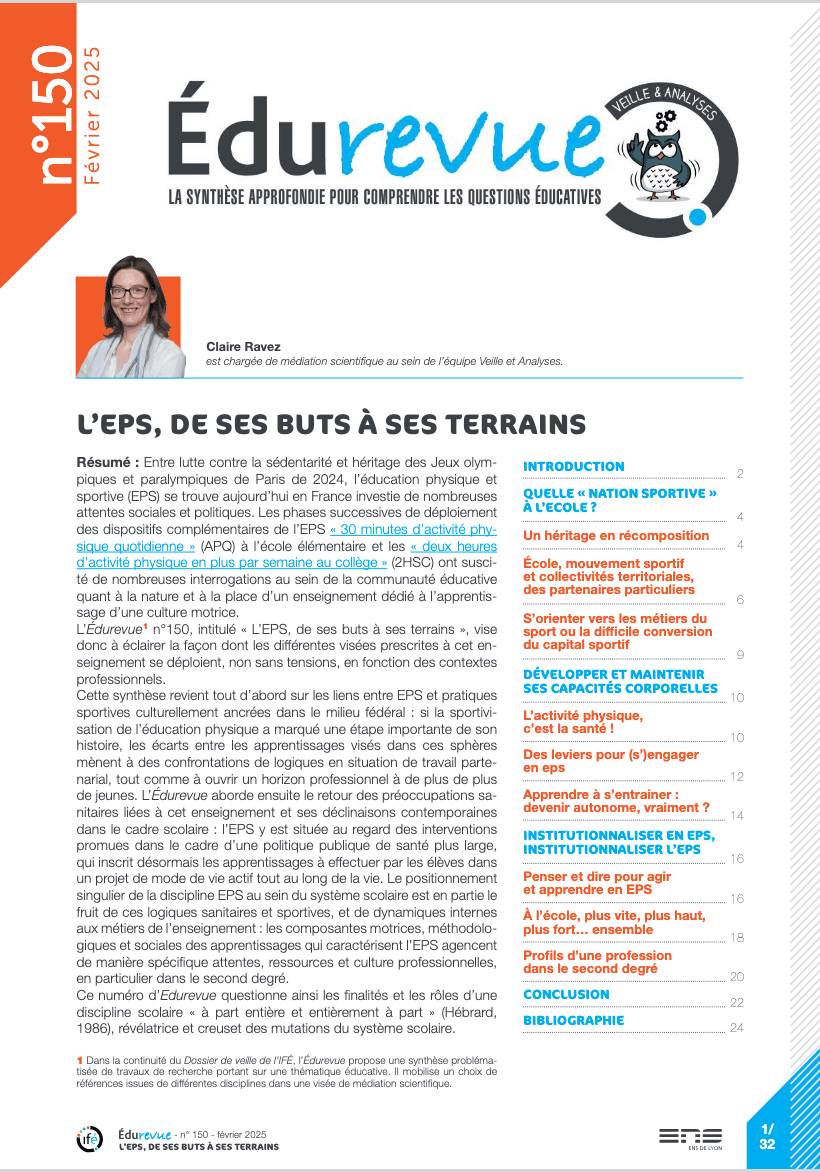L' emploi étudiant : apprentissage du salariat
Auteur(s) : PINTO Gérard
Date de soutenance : 2009
Thèse délivrée par : École des hautes études en sciences sociales
Section(s) CNU : section 19 : Sociologie, démographie
Sous la direction de : Gérard MAUGER
Jury de thèse : Mauger, Gérard ; Lagrave, Rose-Marie ; Bruschi, Catherine ; Fassin, Eric ; Réa, Andrea ; Zancarini-Fournel, Michelle
« Située au croisement de la sociologie de l'éducation, de la sociologie du travail et de la sociologie de la jeunesse, cette thèse porte sur les formes différenciées de l'emploi étudiant. Ayant décrit les transformations de l'enseignement supérieur et du marché du travail, on montre, dans la le partie («Les définitions sociales de l'emploi étudiant»), que les prises de position à l'égard de ce phénomène sont partagées entre la dénonciation de la précarité et la célébration de l'expérience professionnelle. L'approche historique éclaire l'imposition progressive de ce dernier point de vue, dans un contexte de «professionnalisation» de l'enseignement. La 2e partie (« Les usages sociaux de l'emploi étudiant ») dessine l'espace de ces emplois grâce au traitement de l'enquête statistique de l'OVE. Puis la réalisation d'entretiens auprès d'étudiants salariés conduit à dégager 3 logiques polaires correspondant à la fois à 3 types de rapport au temps -« le provisoire », «l'anticipation» et «l'éternisation » -et à 3 modes d'articulation entre emploi et études -« la dissociation », « d'ajustement» et « de substitution ». La 3e partie « Une main-d'œuvre ajustée », qui repose sur des enquêtes ethnographiques (observation participante et entretiens) menées dans la restauration rapide, les centres d'appels et l'animation socioculturelle, analyse la façon dont les différentes fractions d'étudiants salariés tendent à s'ajuster aux exigences de secteurs segmentés entre un pôle «commercial» et un pôle «culturel ». Ajustement qui peut être remis en cause par la constitution progressive d'une main d'œuvre durable, portée, dans certaines conditions, à se mobiliser collectivement. »
Abstract
The student workforce : learning to labour
« This thesis deals with the student labour market and the students' work experience from an analytical perspective combining the sociology of education, youth and work. The 1 st part sheds light on the social definitions of student work: the description of the transformations of higher education and of the labour market is followed by the analysis of how student work has been conceived historically, along a line opposing essentially those who denounce the precarious living conditions of the student population and those who celebrate its work experience. Historical hindsight reveals that the latter point of view is becoming increasingly dominant while higher education is getting under further market pressure. Ln the 2nd part, a secondary analysis of national statistics concerning student living conditions provides a first description of the space of student jobs which is then specified through ethnographic interviews. Three logics are distinguished, each corresponding to 3 ways of relating to the future -temporary, anticipatory and eternising investments in the work definition -and 3 ways of articulating jobs and studies -dissociating the two, adjusting one to the other or substituting one for the other. The 3rd part relies on ethnographic work (participant observation and interviews) in fast-food outlets, call centres and sociocultural animation and shows how the different fractions of working students tend to be well-adjusted to the demands of a labour market that is itself segmented along a cultural/economic line. This form of pre-established harmony is questioned when a quasi-permanent workforce is led, under some circumstances, to invest in collective mobilisations. »
URL : http://www.theses.fr/2009EHES0038
mot(s) clé(s) : enseignement supérieur












